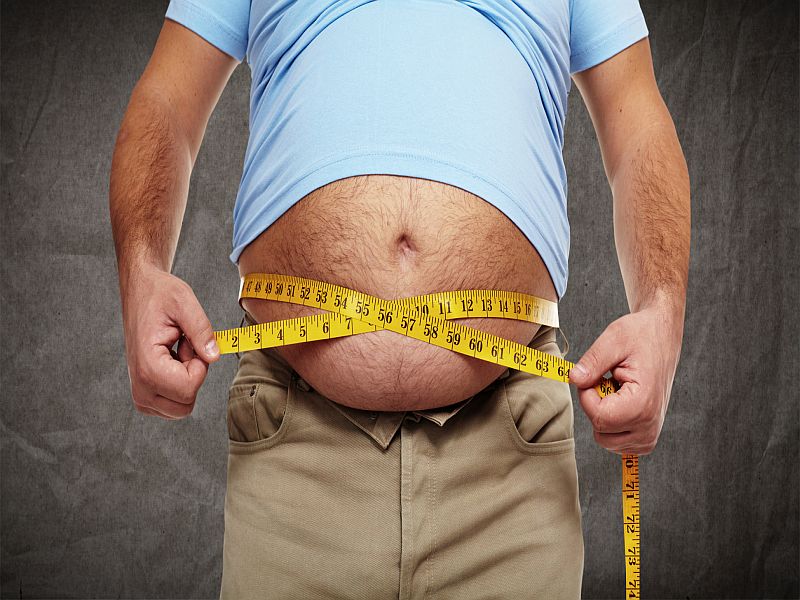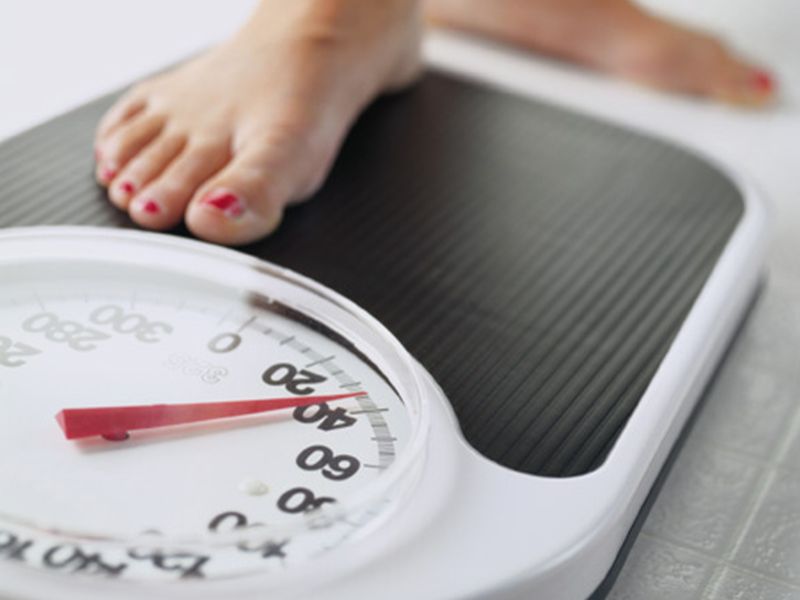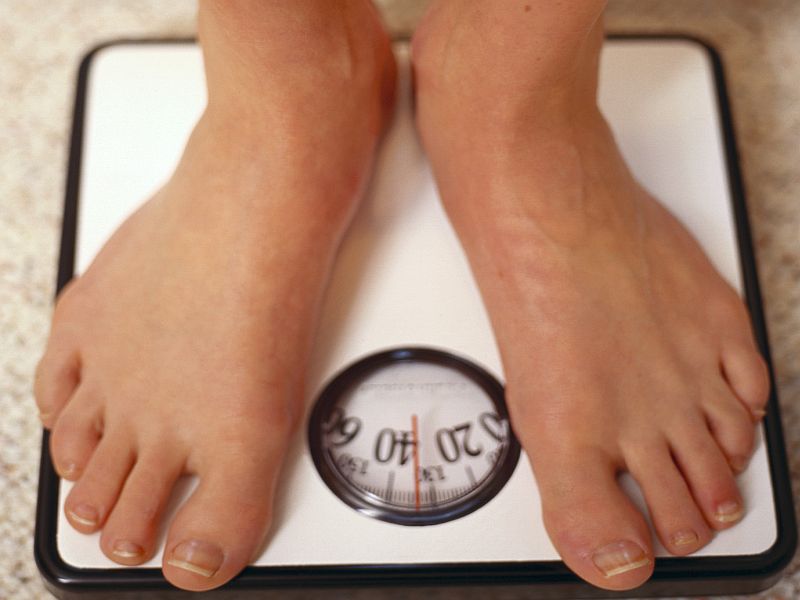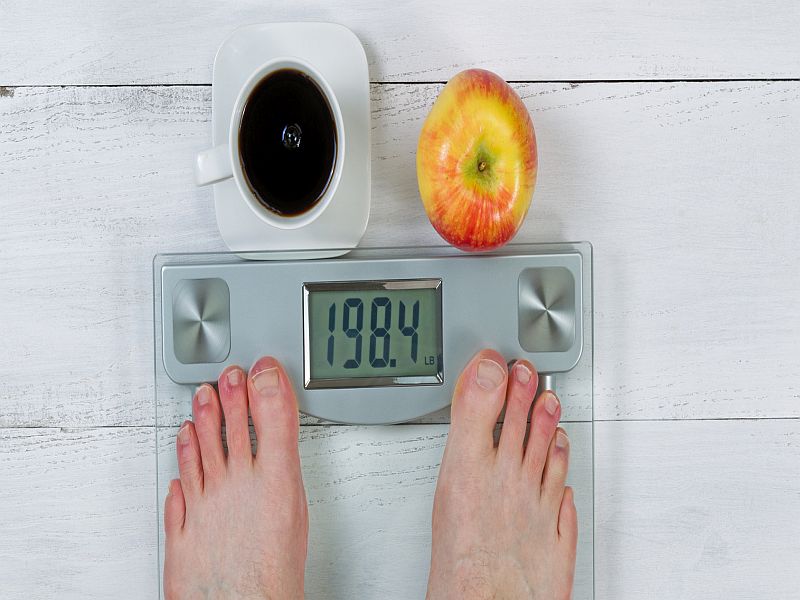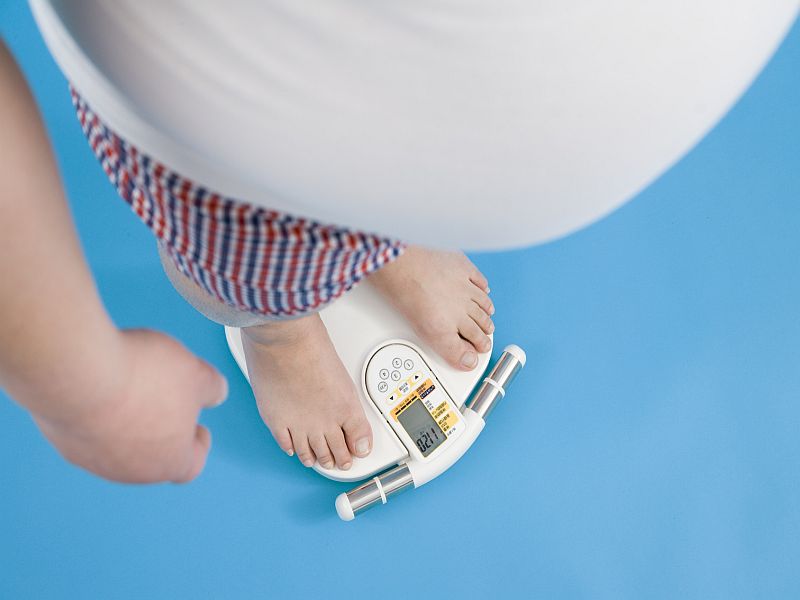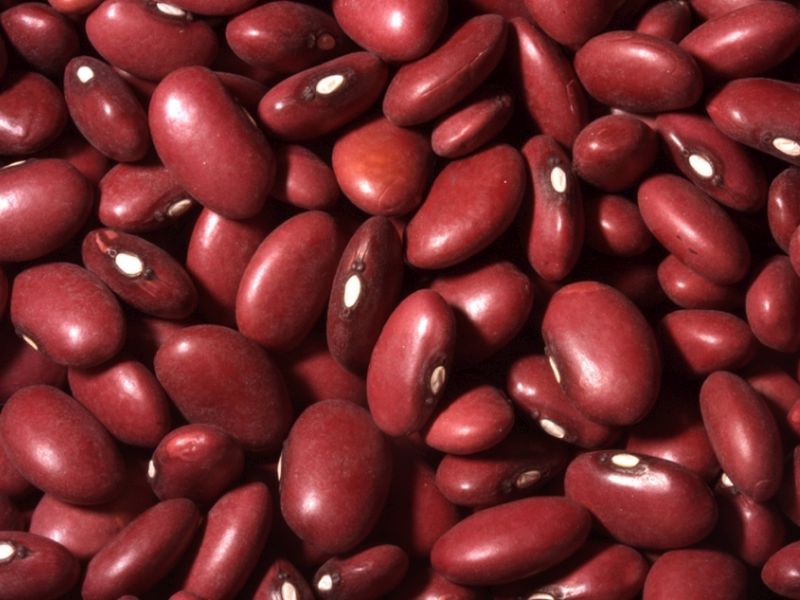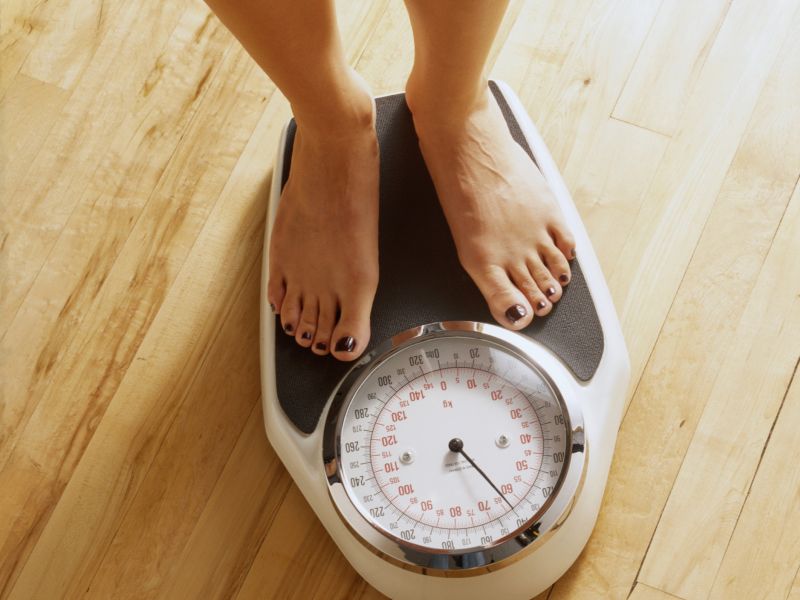Get Healthy!
119 Results for search "Dieting To Lose Weight".
Health News Results - 119
Hoping to eat your way to a healthier heart?
Diets rich in plant foods may beat low-fat eating regimens for cutting the risk of heart disease and stroke, a new study finds.
Saturated fat, the kind largely found in animal products, has long been viewed as the enemy of the heart, since it can raise "bad" LDL cholesterol.
In the new study, which tracked more than 5,100 Americans,...
- Amy Norton HealthDay Reporter
- |
- June 9, 2021
- |
- Full Page
The portion of food that you put on your plate and how fast you eat it could determine how much you're eating -- or potentially overeating.
A new study found that when people were given larger portions of macaroni and cheese for lunch, they ate more, as much as 43% more when the portion size was increased by 75%.
Those who ate faster or took bigger bites also tended to eat more fo...
- Cara Murez HealthDay Reporter
- |
- June 7, 2021
- |
- Full Page
An aggressive weight-loss program not only achieves remission of type 2 diabetes, but may also end the need for blood pressure medications, new research shows.
"Our study shows that, in addition to possible remission from type 2 diabetes, there are other very important health benefits, as weight loss is a very effective treatment for hypertension [high blood pressure] and its associated s...
- Robert Preidt
- |
- June 1, 2021
- |
- Full Page
Teenage girls who use over-the-counter diet pills and laxatives to lose weight run a very high risk of developing eating disorders, researchers say.
In a new U.S. study, girls who used diet pills had a 258% greater risk of being diagnosed with an eating disorder like anorexia or bulimia within five years. If they used laxatives, the risk was 177% greater, compared with those who didn't us...
- Steven Reinberg HealthDay Reporter
- |
- May 26, 2021
- |
- Full Page
So-called yo-yo dieting may increase a woman's risk of insomnia, sleep apnea and other sleep problems, a new study suggests.
Yo-yo dieting -- formally called weight cycling -- is defined as losing and regaining 10 pounds or more when not pregnant.
The study included more than 500 women in every stage of adult life, including childbearing, premenopausal, menopausal and postmenopausal...
- Robert Preidt
- |
- May 24, 2021
- |
- Full Page
The earlier in life type 2 diabetes arises, the deadlier it is, a new analysis finds.
The study, which pooled the results of 26 previous ones, revealed a clear pattern: The younger people were when they developed type 2 diabetes, the greater their risk of complications like heart disease and stroke.
For each year type 2 diabetes was delayed, the risk of blood vessel diseases fell by...
- Amy Norton
- |
- December 15, 2020
- |
- Full Page
No matter how many medications you take, eating a healthy diet, not smoking and getting plenty of exercise will help keep you alive, a new study finds.
"We've long known about the benefits of leading a healthy lifestyle. The results from our study underscore the importance of each person's ability to improve their health through lifestyle changes even if they are dealing with multiple hea...
- Steven Reinberg
- |
- November 12, 2020
- |
- Full Page
If you're overweight, eating most of your calories early in the day won't boost the benefit of a healthy diet, new research suggests.
In a 12-week study, 41 people ate the same healthy diet, but one group ate 80% of their calories before 1 p.m. and the other group ate 50% of their calories after 5 p.m.
All participants consumed the same prepared, healthy meals. Weight and blood...
- Steven Reinberg
- |
- November 10, 2020
- |
- Full Page
No doubt you've heard friends lament they couldn't eat bread because they were on the Keto diet, or maybe it was Paleo, or a low-carb plan or perhaps they were forgoing gluten. It's hard to keep track.
That's because lots of Americans are following a special diet. On any given day, about one in six Americans reports eating a "special" diet, a new U.S. government study finds.
A spec...
- Serena Gordon
- |
- November 4, 2020
- |
- Full Page
More and more people are turning to "intermittent fasting" to lose weight, but the jury is still out on whether the tactic works.
In a new clinical trial, researchers found that one type of intermittent fasting did help overweight and obese adults drop a couple of pounds over 12 weeks. But they fared no better than a comparison group who ate whenever they wanted.
The finding...
- Amy Norton
- |
- September 29, 2020
- |
- Full Page
Want to fend off high blood pressure? New research adds to the pile of evidence showing that living healthy can help you avoid hypertension.
The study included nearly 3,000 Black and white U.S. adults, aged 45 and older, who didn't have high blood pressure at the start of the study.
The participants' heart health was assessed with the American Heart Association's Life's Sim...
- Robert Preidt
- |
- September 16, 2020
- |
- Full Page
Lifestyle interventions can help people lose weight, but experts have worried whether such programs can work in low-income communities where obesity rates can be high and access to health care can be limited.
Until now.
A new study found that when these programs are made accessible, meaningful weight loss can be achieved.
The research team, led by Peter Katzmarzy...
- Serena McNiff
- |
- September 2, 2020
- |
- Full Page
Heart attack survivors are more likely to lose weight if their spouses join them in shedding excess pounds, new research shows.
"Lifestyle improvement after a heart attack is a crucial part of preventing repeat events," said study author Lotte Verweij, a registered nurse and Ph.D. student at Amsterdam University of Applied Sciences, in the Netherlands. "Our study shows that when spous...
- Robert Preidt
- |
- August 27, 2020
- |
- Full Page
The metabolic benefits of weight loss in severely obese people are the same whether they lose excess pounds through dieting or surgery, a new study says.
That suggests that weight loss alone, not any effects of weight-loss (bariatric) surgery, is responsible for metabolic improvements such as better blood sugar control and diabetes remission, according to researchers at the Washington...
- Robert Preidt
- |
- August 21, 2020
- |
- Full Page
Obesity can kill, contributing to the development of cancer, heart disease and diabetes. But losing weight before middle age arrives can help prevent early death, a new study shows.
The researchers tracked health data for more than 24,000 people, considering obesity, weight loss and risk of early death. The study found that people who were obese at age 25 but lost weight between earl...
- Cara Roberts Murez
- |
- August 17, 2020
- |
- Full Page
After a period of improvement, U.S. kids are eating as much fast food as they were in the early 2000s, new government figures show.
Researchers found that between 2003 and 2010, there was a decline in U.S. kids' intake of fast-food calories -- dipping from an average of 14% of daily calories, to just under 11%.
The positive trend was short-lived, however. By 2018, th...
- Amy Norton
- |
- August 14, 2020
- |
- Full Page
Glaucoma strikes many people as they age, but what if a simple dietary change could lower your risk?
New research suggests it can: Scientists found a low-carbohydrate diet might protect you against the vision-robbing disease.
The researchers analyzed data from 185,000 female nurses and male health professionals, aged 40 to 75, who took part in three large studies in the Uni...
- |
- July 27, 2020
- |
- Full Page
Limiting food to a narrow window of time each day may help people shed some extra pounds, a small study finds.
And restricting your eating to six hours may work as well as a stricter four-hour time frame, researchers found.
In an eight-week trial, researchers found that either of two "time-restricted" diets helped obese people drop some pounds -- about 3% of their star...
- Amy Norton
- |
- July 20, 2020
- |
- Full Page
The now-trendy keto diet is said to turn fat into fuel. But a new, small study says it may also change the vast array of microbes residing in your gut (the microbiome).
That could be a good thing, as those changes may ultimately strengthen the immune system by tamping down inflammation, researchers say.
The keto diet, which severely restricts carbohydrates and emphasizes fat...
- Alan Mozes
- |
- May 21, 2020
- |
- Full Page
While you're hunkered down waiting for the coronavirus to abate, you might get inspired to lose weight. But which diet is best?
The short answer is that all diets seem to work. The long answer is you'll probably regain the weight within a year.
"There is no diet that somehow magically helps you keep the weight off," said Dr. Gordon Guyatt of McMaster University in Ontario,...
- Steven Reinberg
- |
- April 2, 2020
- |
- Full Page
The more fit you are when you start a weight-loss program, the more weight you could lose, a new study says.
"This research could help us improve the design of our weight-loss programs and suggests that adults with very poor fitness may benefit from additional exercise support during a weight-loss program to achieve higher levels of moderate-to-vigorous physical activity and improve l...
- Robert Preidt
- |
- March 31, 2020
- |
- Full Page
If you are feeling the aches and pains of what you think is the flu, a trendy diet may be the culprit instead, a new study confirms.
Researchers took a dive into what's become known as "keto flu" -- the fatigue, headache, nausea and mental fog that some people develop soon after starting a ketogenic diet.
The keto diet, which is loaded with fat and skimpy on carbs, has beco...
- Amy Norton
- |
- March 13, 2020
- |
- Full Page
A clinical trial of the weight-loss drug Belviq (lorcaserin) shows an association with an increased risk of cancer, and the U.S. Food and Drug Administration is requesting that its maker withdraw the drug from the U.S. market.
Eisai Inc. has already "submitted a request to voluntarily withdraw the drug," Dr. Janet Woodcock, who directs the FDA's Center for Drug Evaluation and Research...
- E.J. Mundell
- |
- February 14, 2020
- |
- Full Page
If you want to reduce bloating when eating a high-fiber diet, try making it carbohydrate-rich rather than protein-rich, new study findings suggest.
Bloating is a common side effect that discourages many people from adopting a high-fiber diet.
For the study, researchers analyzed data from a clinical trial involving 164 participants who followed heart-healthy, high-fiber diets...
- Robert Preidt
- |
- February 5, 2020
- |
- Full Page
A new study suggests that genetics is not destiny when it comes to your odds of becoming obese.
For years, research into "obesity genes" has led many Americans to believe that their DNA makes becoming overweight and obese inevitable.
But the new study shows that daily lifestyle -- not genes -- probably plays the much bigger role.
The study tracked data on more tha...
- E.J. Mundell
- |
- January 8, 2020
- |
- Full Page
For decades, consumers have often been puzzled by what a "serving" means on Nutrition Facts labels on foods.
Well, things might have just gotten a bit clearer. New labeling regulations went into effect in January, and on many products you'll now see the total amount of calories (and various nutrients) per serving, as well as for the whole package.
"With the introduction of t...
- E.J. Mundell
- |
- January 7, 2020
- |
- Full Page
Here comes the new year, and with it hordes of folks looking for ways to fulfill resolutions to eat healthy.
Intermittent fasting is a legitimate option they might want to consider, claims a new review in the Dec. 26 issue of the New England Journal of Medicine.
"The state of the science on intermittent fasting has evolved to the point that it now can be considered as...
- Dennis Thompson
- |
- December 26, 2019
- |
- Full Page
Americans are more motivated to lose weight than ever before, with increasing numbers eating less, exercising, drinking water and trying out new diets.
And it's all for naught.
Folks are heavier than ever despite all this effort, reports a new study.
The proportion of people who've tried to lose weight during the previous year increased to 42% in 2015-2016, up...
- Dennis Thompson
- |
- November 13, 2019
- |
- Full Page
Being on a weight-loss diet day in and day out for months on end can be challenging and even discouraging.
What's more, following the same never-ending diet could be the reason you aren't getting the results you're looking for. A study in the International Journal of Obesity found an alternative that can provide better weight loss results and is easier to stick with.
...
- Len Canter
- |
- November 11, 2019
- |
- Full Page
You've worked hard to curb mindless eating by not watching TV with a bag of chips in your lap, and you log everything you do eat in your smartphone app. But you could still be taking in more calories than you realize.
The fact is that throughout each day, you're bombarded by sneaky sources of extra calories that never get recorded in that journal of yours. And the result could sabota...
- Len Canter
- |
- October 15, 2019
- |
- Full Page
The health of people with type 2 diabetes often improves dramatically with a 5% to 10% weight loss -- but to sustain the benefits, you need to keep the weight off, new research claims.
After losing weight with a yearlong intervention, blood sugar and blood pressure levels go down and cholesterol results improve. People who kept at least 75% of that weight off for another t...
- Serena Gordon
- |
- October 9, 2019
- |
- Full Page
Scientists are learning more about why keeping off lost weight is so hard -- and a pair of studies suggest it's more than a question of sheer willpower.
A Dartmouth University study published in Cognitive Neuroscience used brain imaging tests to show that some people have an imbalance between the executive control and reward systems of the brain. This disconnect means you may n...
- Len Canter
- |
- October 1, 2019
- |
- Full Page
Research published in the Journal of Nutrition and Dietetics highlights two important steps for improving diet and exercise habits. The first is getting practical and personalized tips for making changes that you'll permanently adopt. The second is developing the inner motivation needed to help make the first step stick.
The study recruited adults from a rural area in the South...
- Len Canter
- |
- September 26, 2019
- |
- Full Page
It happens to most aging Americans: Excess pounds pile on, despite efforts to eat right and exercise.
Now, research in fat cells reveals why it's so tough to stay slim as you get older. The new findings could point to new ways to treat obesity, Swedish investigators say.
A team led by Peter Arner of the Karolinska Institute in Stockholm analyzed fat cells taken from 54 men a...
- Robert Preidt
- |
- September 9, 2019
- |
- Full Page
Tired of that spare tire?
Low-calorie diets work, but can be difficult to follow. A much simpler approach to losing weight might be to just stop eating every other day.
It's called alternate-day fasting (ADF). As the name implies, you starve yourself by fasting one day and then you feast the next, and then repeat that pattern again and again.
In just the month-lo...
- Serena Gordon
- |
- August 28, 2019
- |
- Full Page
McDonald's, Wendy's, Burger King, KFC: If you pass by these and other fast-food outlets on your daily commute, weight gain might be the result, new research shows.
People tempted by more fast-food restaurants going to and from work tended to have a higher BMI (body mass index) than people who didn't, the researchers said. The study involved more than 700 female elementary school emp...
- Robert Preidt
- |
- August 7, 2019
- |
- Full Page
The keto diet has plenty of weight-loss devotees who swear by the high fat, low-carb plan. Now, new research from India suggests it may benefit people with type 2 diabetes.
The study team found that people following a ketogenic diet for three months saw significant improvement in their blood sugar control.
"A five to 10% carbohydrate diet over three months led to a rem...
- Serena Gordon
- |
- August 5, 2019
- |
- Full Page
Could America's favorite morning drink also help fight one of its biggest health issues, obesity?
That's the suggestion from a British study that finds coffee stimulates the human body's "brown fat," a heat-generating form of fat that literally burns calories in a process called thermogenesis.
"This is the first study in humans to show that something like a cup of coffee can...
- E.J. Mundell
- |
- June 24, 2019
- |
- Full Page
A new research review published in the BMJ has added to the debate over the merits of breakfast. It has long been regarded as "the most important meal of the day" -- and probably still is for growing children -- but what about adults who are trying to lose weight?
The theory has been that eating breakfast headed off rebound eating later in the day and into the night. But the n...
- Len Canter
- |
- May 31, 2019
- |
- Full Page
Strokes are common but not inevitable. There are ways you can reduce your risk, starting with your blood pressure.
Stroke is the fifth leading cause of death in the United States and the leading cause of permanent disability, said Dr. Gary Bernardini, neurology chair at New York-Presbyterian Hospital Queens.
Most strokes occur when blood flow to the brain gets cut off. Here,...
- Robert Preidt
- |
- May 9, 2019
- |
- Full Page
Kids who favor diet sodas over sugary ones don't consume fewer calories over the course of a day, a new study finds.
And they average 200 more calories daily than their peers who choose water, according to the results of a survey of over 7,000 U.S. children and teens.
Experts said the findings support what's already recommended by groups like the American Heart Association:...
- Amy Norton
- |
- May 2, 2019
- |
- Full Page
Sticking with a diet starts with having a plan that maps out meals and snacks based on foods that help you feel full longer. After all, if you feel satisfied, you'll be less likely to rummage through your kitchen cabinets looking for treats.
But sometimes cravings can get the better of you. You might be tempted by the whiff of a bakery as you walk to work, want something sweet to che...
- Len Canter
- |
- April 30, 2019
- |
- Full Page
New research suggests a first-line drug for treating type 2 diabetes -- metformin -- may help people with pre-diabetes maintain long-term weight loss.
People who lost weight while taking metformin maintained a loss of about 6% of their body weight for six to 15 years. People who lost weight through lifestyle changes -- eating healthily and exercising regularly -- managed to keep ...
- Serena Gordon
- |
- April 22, 2019
- |
- Full Page
If you've lost a bunch of weight and want to keep those pounds from piling back on, you'll need to make regular physical activity a part of your life.
New research looking at people who lost 30 pounds or more and kept it off for a year or longer found that regular exercise was key.
"These people rely on physical activity to maintain their weight rather than restricting cal...
- Serena Gordon
- |
- April 4, 2019
- |
- Full Page
Maybe you rush around with work and activities during the day, then settle in for a large, relaxing meal in the evening. But new research says the later in the day you eat, the more weight you're likely to pack on.
That's the takeaway from a week-long study involving 31 overweight and obese patients, mostly women.
"We evaluated meal and sleep timing in patients with overweig...
- Alan Mozes
- |
- March 25, 2019
- |
- Full Page
For people who carry too much weight and suffer from migraines, dropping some pounds might help ease their pain, new research shows.
"When people lose weight, the number of days per month with migraine decreases, as does pain severity and headache attack duration," said lead researcher Dr. Claudio Pagano. He is associate professor of internal medicine at the University of Padova in It...
- Robert Preidt
- |
- March 25, 2019
- |
- Full Page
Tipping the scales at 233 pounds, Charles Joy realized he needed to make some changes.
The 28-year-old Louisville, Kentucky, native already had tried many diet plans to varying degrees of success. In 2013, he lost more than 100 pounds through exercise and diet. But afterward, his weight slowly began to creep back up.
In 2017, Joy decided to try time-restricted eating, cons...
- |
- March 22, 2019
- |
- Full Page
Has your hectic lifestyle turned you into someone who gulps down meals?
People who eat quickly tend to eat more and have a higher body mass index (a measure of body fat based on height and weight) than those who eat slowly. People who eat slowly feel full sooner and eat less in the process.
Part of the reason for this is the time it takes for your brain to get key messages...
- Len Canter
- |
- March 11, 2019
- |
- Full Page
A lot of people struggle to maintain their ideal weight, but repeatedly losing and regaining pounds -- known as yo-yo dieting -- probably won't do your heart any favors.
A new study found that women who lost at least 10 pounds, but then put that weight back on within a year, were more likely to have risk factors for heart disease. The more times someone went on a yo-yo diet, the worse...
- Serena Gordon
- |
- March 7, 2019
- |
- Full Page
Your metabolism rate determines how fast you burn calories, and that can influence how fast you lose weight -- and how easily you can gain it.
After age 25, metabolism naturally slows by 5 percent every decade. So if you eat as much in your 40s as you did in your 20s, you're going to add extra pounds -- especially if you exercise less and lose muscle. In addition to weight training t...
- Len Canter
- |
- March 4, 2019
- |
- Full Page














